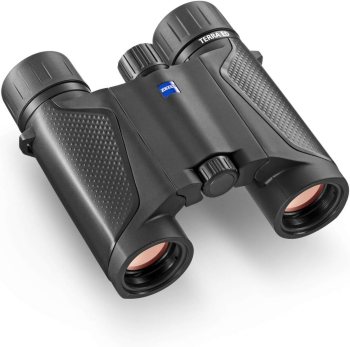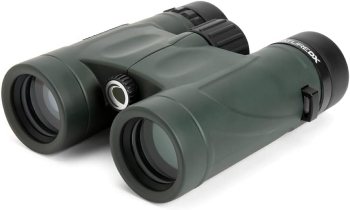- High optical clarity
- Compact and foldable
- Durable and weatherproof
- Affordable price
- Bright and sharp images
- Comfortable for eyeglass wearers
- Higher price point
- Limited eye relief for eyeglass wearers
- Slightly heavier than some compact models
- Less compact than some other options
Zeiss Terra ED Pocket 8x25 vs Celestron Nature DX 8x32
When it comes to choosing the right pair of compact binoculars for outdoor enthusiasts, two popular options are the Zeiss Terra ED Pocket 8x25 and the Celestron Nature DX 8x32. Both models offer excellent optical quality, ergonomic design, and durability, but there are some key differences that set them apart.
Optical Performance
The Zeiss Terra ED Pocket 8x25 features a high-quality ED (Extra-Low Dispersion) glass lens system, which provides exceptional color accuracy, contrast, and resolution. The 8x magnification power is ideal for observing wildlife, birdwatching, or taking in scenic views. With a compact design and a close focus distance of just 5.25 feet, these binoculars are perfect for getting up close and personal with your subject.
On the other hand, the Celestron Nature DX 8x32 boasts a slightly larger objective lens diameter (32mm vs 25mm) and a wider field of view (330ft vs 286ft). This results in brighter images with better low-light performance, making them suitable for early morning or late evening observations. The Celestron's optical system is also designed to reduce chromatic aberration, providing sharp and clear images.
Ergonomics and Build
Both models are designed with comfort and durability in mind. The Zeiss Terra ED Pocket 8x25 features a compact and lightweight design (10.9 oz), making them easy to carry on long hikes or backpacking trips. The ergonomic grip and rubberized coating provide a secure hold, even in wet conditions.
The Celestron Nature DX 8x32 is slightly larger and heavier (17.6 oz) than the Zeiss model, but still comfortable to hold and use for extended periods. The binoculars are built with a rugged polycarbonate housing and feature a textured rubber coating for improved grip and protection against the elements.
Additional Features
The Zeiss Terra ED Pocket 8x25 comes with a waterproof and nitrogen-filled design, ensuring that the internal optics remain fog-free in changing environmental conditions. They also feature a convenient twist-up eyecup system and a wide interpupillary distance range (54-74mm), allowing for comfortable use by both adults and children.
The Celestron Nature DX 8x32 offers a similar set of features, including waterproofing, nitrogen purging, and twist-up eyecups. Additionally, they come with a close focus distance of just 6.5 feet and a long eye relief (17mm), making them suitable for users who wear glasses.
Conclusion
In conclusion, both the Zeiss Terra ED Pocket 8x25 and the Celestron Nature DX 8x32 are excellent choices for compact binoculars, offering outstanding optical performance, ergonomic design, and durability. While the Zeiss model excels in terms of its compact size and close focus distance, the Celestron Nature DX 8x32 provides a wider field of view and better low-light performance.
Ultimately, the choice between these two models depends on your specific needs and preferences. If you prioritize a lightweight and ultra-compact design, the Zeiss Terra ED Pocket 8x25 may be the better option. However, if you're willing to sacrifice some compactness for improved optical performance and a wider field of view, the Celestron Nature DX 8x32 is definitely worth considering.
As compact binoculars, both models are perfect for outdoor enthusiasts who need a reliable and versatile optic that can keep up with their active lifestyle. Whether you're hiking, birdwatching, or simply enjoying scenic views, these binoculars will provide you with a high-quality viewing experience that's sure to enhance your appreciation of the natural world.































